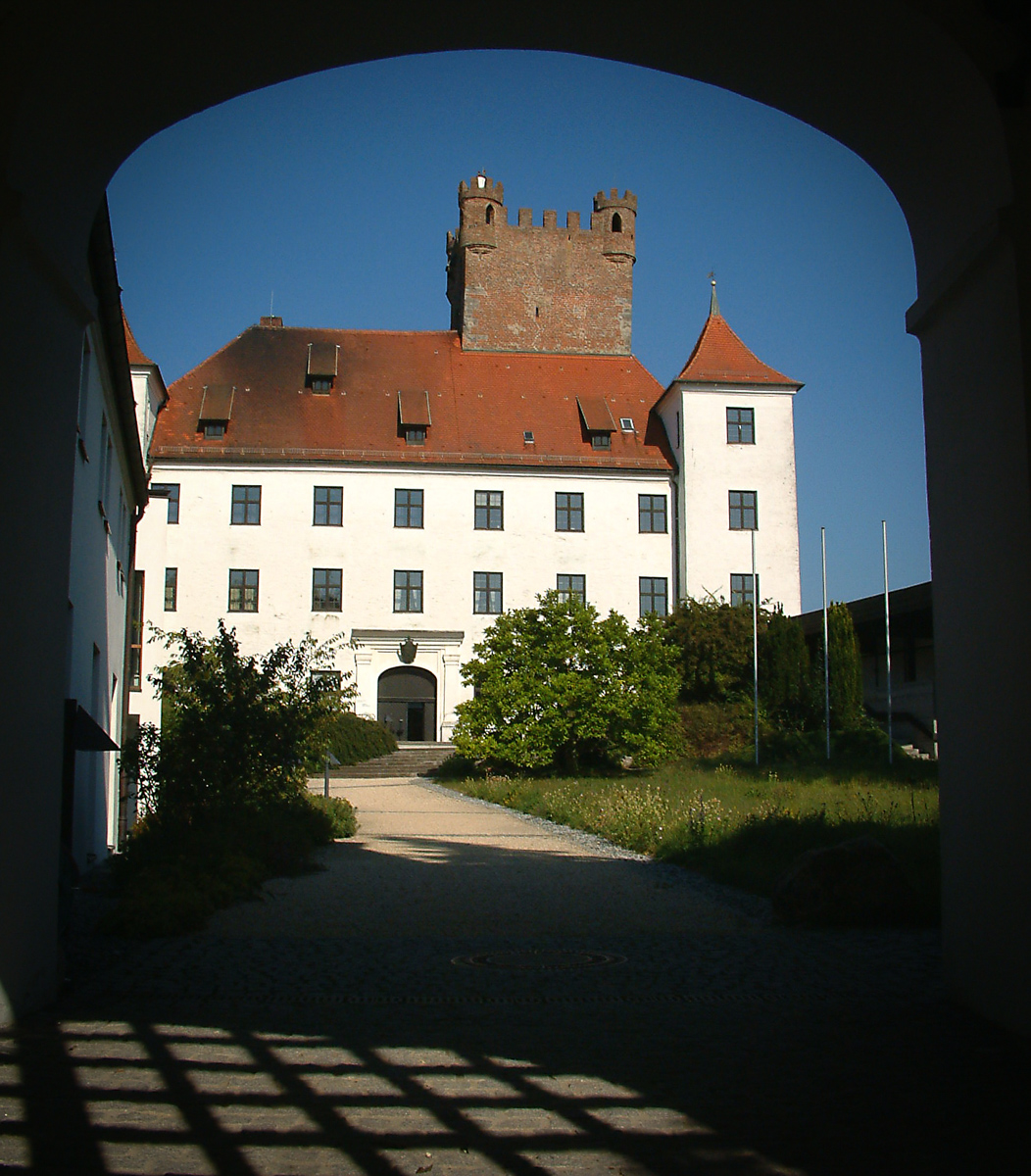Colloquium 632
Data-driven modeling of porous, composite and polycrystalline microstructures for predicting their mechanical and transport properties
20 September – 22 September 2023, Ulm, Germany
General Information
For a wide range of materials, such as, e.g., battery electrodes, alloys or bio-materials, the underlying microstructure strongly influences mechanical and transport processes, which-in turn are key for the functionality of these materials. Thus, methodology for an efficient microstructure optimization is required. During the last decades, stochastic as well as numerical modeling and, in particular, the combination of both turned out to be powerful for virtual materials testing.
Stochastic 3D microstructure modeling allows for the generation of so-called digital twins and, moreover, of a wide range of further virtual, but realistic microstructures on the computer, while numerical modeling enables for the simulation of mechanical and transport properties of those virtual microstructures. In doing so, process-microstructure-property relationships can be quantitatively investigated by means of simulation studies in an efficient way. Ideally, this approach leads to structuring recommendations for experimentalists dealing with the synthesis and manufacturing of materials possessing optimized microstructures.
This EUROMECH colloquium focuses on recent advances in the field of data-driven microstructure modeling and addresses a wide spectrum of materials and applications: porous, composite and polycrystalline media, mechanical and transport properties. Topics for presentations include, but are not limited to
- machine learning and stochastic microstructure modeling,
- generation of digital twins
- numerical simulation of effective properties
- AI-based methods for characterizing, predicting or optimizing mechanical and transport properties, as well as
- elucidating process-microstructure and microstructure-property relationships
are welcome.
Abstract submission: Please send title and abstract of your proposed contribution to the following mail-address: euromech632(at)uni-ulm.de.
Conference fee (including accomodation, breakfast, lunch, dinner): 640 €.
Participation leads to a Euromech membership for one year.
Committes
Chairpersons:
Dr. Matthias Neumann, Institute of Stochastics, Ulm University, Helmholtzstraße 18, 89069 Ulm, Germany, phone: +49 731 50 23506, mail: matthias.neumann@uni-ulm.de
Dr. François Willot, MINES ParisTech, Centre for Mathematical Morphology, 35 rue St-Honoré, 77300 Fontainebleau, France, phone: +33 1 64 69 48 07, mail: francois.willot@minesparis.psl.eu
Prof. Dr. Paul Shearing, Department of Chemical Engineering, University College London, Torrington Place, London WC1E 7JE, UK, phone: + 44 20 7679 3783, mail: p.shearing@ucl.ac.uk
Speakers
| Andreas | Alpers | The University of Liverpool, UK |
| Sandra | Barman | RISE Research Institutes of Sweden |
| Anja | Bielefeld | Justus-Liebig University, Giessen, Germany |
| Branko | Bijeljic | Imperial College, London, UK |
| Luis | Bonilla | Universidad Carlos III de Madrid, Spain |
| Davide | Cademartori | Università degli Studi di Genova, Italy |
| Pietro | Carrara | ETH Zurich, Switzerland |
| Thomas | Carraro | Helmut-Schmidt-University / University of the Armed Forces, Hamburg, Germany |
| Timo | Danner | German Aerospace Center (DLR) / Helmholtz Institute Ulm, Germany |
| Alejandro A. | Franco | Université de Picardie Jules Verne, Amiens, France |
| Orkun | Furat | Ulm University, Germany |
| Johannes | Gerritzen | TU Dresden, Germany |
| Lorenz | Holzer | Zurich University of Applied Sciences, Winterthur, Switzerland |
| Alok | Mehta | Karlsruhe Institute of Technology, Germany |
| Alexandra | Pamperin | Karlsruhe Institute of Technology, Germany |
| Zbynek | Pawlas | Charles University, Prague, Czech Republic |
| Sahadev | Pradhan | Indian Institute of Science, Bangalore, India |
| Benedikt | Prifling | Ulm University, Germany |
| Claudia | Redenbach | Technical University of Kaiserslautern, Germany |
| Magnus | Röding | RISE Research Institutes of Sweden, Göteborg, Sweden |
| Aila | Särkkä | Chalmers University of Technology, Göteborg, Sweden |
| Katja | Schladitz | Fraunhofer ITWM, Kaiserslautern, Germany |
| Volker | Schmidt | Ulm University, Germany |
| Seoyun | Sohn | Helmholtz-Zentrum Hereon, Geesthacht, Germany |
| Isaac | Squires | Imperial College, London, UK |
| Isaac | Squires | Imperial College, London, UK |
| Gabriella | Tarantino | Université Paris-Saclay, France |
| Johannes | Wiedemann | German Aerospace Center (DLR) / Helmholtz Institute Ulm, Germany |
Venue
Address:
Science Center Castle Reisensburg of Ulm University
Bürgermeister-Johann-Müller-Str. 1
D-89312 Günzburg / Donau
Public Transportation:
The train station closest to Science center 'Reisensburg Castle' is Günzburg. The train station Günzburg is located at the line Stuttgart - Ulm - Augsburg - Munich. The nearest major airports are Munich and Stuttgart. There is no public transportation from the train station Günzburg to Science center 'Reisensburg Castle', hence you are advised to take a taxi.
Footpath from the train station to Science center 'Reisensburg Castle' (2,3 km):
At the train station, turn left to Siemens-Straße and further to Dillinger Straße (B10 and B16), then after ca. 250m left into the Reisensburger Straße, that later turns into Günzburger Straße, finally turn left to Weihergasse up to Science center 'Reisensburg Castle'.
Driving Directions:
From the freeway exit Günzburg (A8):
Take B16 towards Günzburg / Reisensburg. Turn left onto B10 / Dillinger Str. direction Reisensburg, then left into Reisensburger Str. After ca. 700m straight ahead on Günzburger Str. Turn left into Georg-Lacher-Str., after ca. 300m again left into Bürgermeister-Johann-Müller-Str.
Accomodation
The Science center 'Reisensburg Castle' offers all guests an excellent service. At the same time, the castle with its medieval ambience is not comparable to a "normal" conference hotel. Science center 'Reisensburg Castle' is a modern but historic conference and retreat venue of manageable size. Guests quickly feel at home in the almost family-like environment.
For the accommodation of the guests, modern rooms are available in the south wing (picture on the left) and in the newly built north wing, a total of 45 single and 5 double rooms.
The guests are catered by the hotel's own kitchen, which prepares meals mainly from local products.

